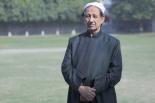1st Executive Council Meeting |
|
1st Executive Council Meeting: Saturday 23rd and Sunday 24th January 2021 |

ACCOUNTING IN ISLAM
The fact that Islam as a religion has precision built into it is an undeniable fact. As we evolve with our knowledge of the Holy Qur’an, it is fairly obvious that there is a lot that is yet to be discovered in this miraculous book of revelation. Scientists who study the holy Qur’an continue to be astounded by how it continues to reveal what they are just discovering. The magnificence of the Holy Qur’an is timeless and as much as man tries to dismiss it, it will endure.
The timeless example of the miracle of sea and land in the Quran is quoted and we tend to acknowledge it but not celebrate or revere the treasure we hold in our hands.
When one adds up the total words of both "sea" and "land" we get 45. A simple mathematical calculation leads to:
32/45 X 100% = 71.11111%
13/45 X 100% = 28.88888%
As we all know today, these are the percentages of water (sea) and land in the world. As Allah (swt) correctly points out “Which is it, of the favors of your Lord, that you deny?” in Surah ar-Rahman, the 55th Surah of the Holy Qur’an. It is one of the most notable verses of the Holy Qur’an. To the extent, it is repeated 31 times throughout Surah ar-Rahman as if to emphasize Allah’s omnipotence.
Data, in the parlance of Islamic knowledge, is as empirical as it is miraculous. Data is not only numerical as we are all aware. Look at the aspect of Sanad and the emphasis on ensuring that the chronology of the authentication of hadith is a science; it is as comprehensive as it is data-driven.
In the aspect of charity, Imam Ali (as) used his knowledge of who is deserving to give to those in need in the middle of the night to maintain the sanctity and respect of these individuals. This too is a form of data management. From Imam Ali (as), we learn that data too can and should be sensitive.
The world is in a place where there is a place for the softer aspects of humankind towards all creations of Allah (swt) as well as the need to ensure we need critical thinking to manage different aspects of our lives. A good critical thinker is able to separate facts from opinions, examine an issue from all sides, make rational inferences and thus withhold personal judgment or biases.
So where does one draw the line between the need for data, logic and maintaining a sense of ‘Hayya’ when it comes to managing sensitive data. A good yardstick is the advice the Holy Prophet of Islam gave to Abu Dharr Al Ghifari wherein he stated:
“Oh Abu Dharr! Take account of yourself before you're taken account of so your accounting will be easier tomorrow. And weigh yourself before you are weighed and prepare for the great staging; the day you will be presented, not the least of a hidden thing of you will be hidden from Allah.”
As simplistic as it sounds, this is a subject that can one can study and discuss with scholars and never end.
If we were standing on the day of justice being questioned, what aspects of our bounties will speak for us and vice versa? What will our wealth say, be it monetary, knowledge, or time? What will our demeanor towards others say? What will be the accounting of our relationships to our family say of us? What will the earth say of us in how we used this Rahma of Allah? What will our body parts state on that day? What will our intellect say with a view to using this gift of Allah? Did we use it to further causes that went against Allah’s (swt) guidance?
As the creation, we are very quick to be judgmental and somehow meander into the territory of taking on Allah’s (swt) mantle of being judge and jury. Allah has a Judgment in every case, matter, dispute, question, and every problem or conflict.
The following Qur’anic verses testify to this truth:
"Say: O Allah! Originator of the heavens and the earth, Knower of the unseen and the seen! Thou (only) judgest between Thy servants as to that wherein they differ". [39:46]
"But Allah will judge between them on the Day of Resurrection concerning that over which they used to differ". [2:113]
"And if there is a party of you who believe in that with which am sent, and another party who do not believe, then wait patiently until Allah judges between us; and He is the best of the Judges". [7:87]
Therefore, guidance is given to man is to make a just and fair judgment, which is the divine judgment. In other words, they must make all efforts to deduce Allah’s judgment so that they rule with it and then we can understand Allah’s words in these verses:
“And if you judge, judge between them with equity; surely Allah loves those who judge equitably.” [5:42]
“And that when you judge between people, you judge with justice.” [4:58]
Based on hadith of how the chosen ones passed judgement, it was fairly obvious that their inferences were of a divine nature and thus the advice that those who abide only by Allah’s (swt) judgment when it comes to issuing judgments whether the judge or the one being judged; they are the true believers as depicted in this Qur’anic verse:
“The response of the believers, when they are invited to Allah and His Messenger that he may judge between them is only to say: We hear and we obey; and these it is that are the successful.” [24:51]
The divine judgment is most beloved to true believers than their own personal desires or benefits, than their own parents and children, than their lives itself and that is the real test of faith.
One’s ability to account for oneself first and foremost before passing judgement on others is a key aspect of the journey towards Tawba. Thus, having cleansed ourselves during this Holy Month of Ramadan, taking into account an Allah (swt) whose mercy knows no bounds to the sincerely repentant, we need to weigh our actions with tremendous humility. We can do this by asking ourselves the tough question – have I done anything today to displease Allah – before we lay down to sleep at night and if possible seek forgiveness from Allah and/or the aggrieved person quickly lest, God forbid, you do not wake up the next morning.
Let us remember that the Day of Judgement is the day that all injustices will be corrected and the truth will prevail over falsehood. So, do our account books stack up and balance!
Related News
Related News
Dr Kalbe Sadiq – An Exemplary Thinker and Educationalist (1939 – 2020) - OBITUARY
The World Federation is excited to announce that our Teacher Skills Programme (TSP) Level 2 training has been officially accredited by the NCFE, for the first time in any community which provides educational training to madrasah teachers. Learn more here.












